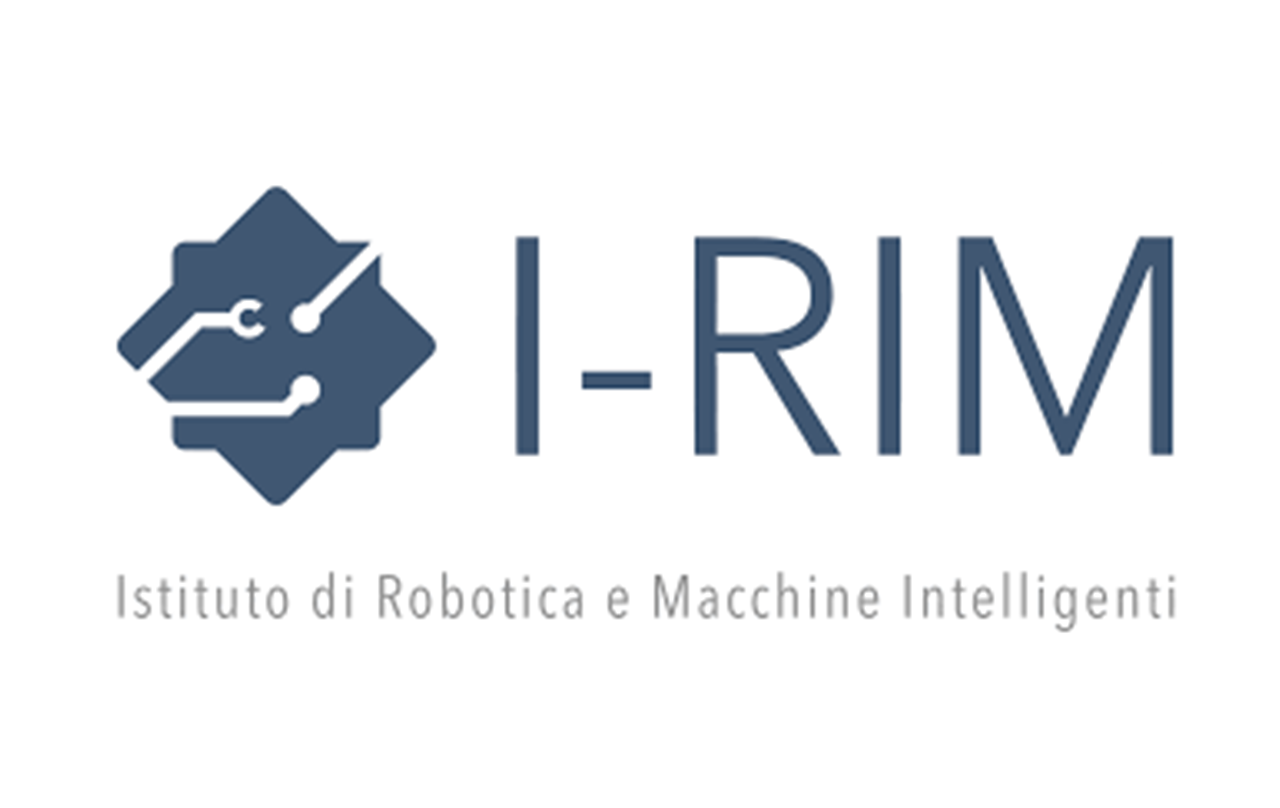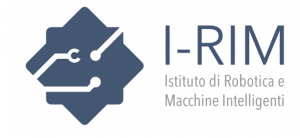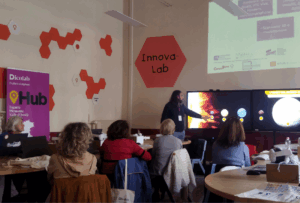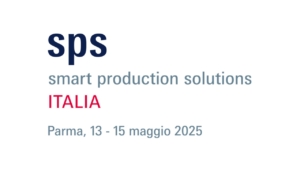
Dicolab. Digital Culture: Free Courses in July 2025
Last free and certified Dicolab courses for professionals in the culture and heritage sector before the summer break: three innovative courses that explore the new


CNR-ISTC, CNR -IEIIT, DIBRIS UNIGE, Omitech, and School of Robotics
organize the on line workshop
Human-Centric Robotics: focusing on robotics for assistance and collaboration with humans
December 10, 2020, 3-5 pm (CET
in the frame of the I-RIM 3D 2020 conference (https://i-rim.i
and of the Maker Faire 2020
Description
Research and applications on and of assistive robots are growing, motivated by the demand for robots that can assist and even collaborate with the older people, children, disabled people and in general that can contribute to human wellbeing, understood in a general sense, not only as physical wellbeing (relief from difficult or dangerous operations), also wellbeing linked to social relations, to the wealth of communication, to the possibility of coming into contact with the people (Cooney MD, Nishio S., Ishiguro H., 2015). Furthermore, it is a while that “Human-Centric” is a sort of key modificator associated with any recent scientific development, from here our attempt at giving semantics to such modificator in the case of Robotics starting with this workshop but further on with follow up actions triggered by the workshop.
These aspects and motivation in the design and implementation of assistive robots highlight the need to give these robots complex functions, including the ability to identify the human to assist or collaborate with, to understand the language, to take into account the cultural differences among people, and to avoid bias and stereotypes that could introduce serious errors.
Several research and application projects show a good level of acceptance of robots by children and adults. Even when the functions of a robot could have been performed by a digital system (camera, tablet, smartphone), robots’ applications used in the case of patients suffering from COVID-19 and therefore in isolation showed patients’ preference for the physical form of humanoid robots.
The most recent studies on assistive robotics concern those specific characteristics that can give rise to emotions and eliciting attachment and affection in humans, based on studies about human communicating and robot interface, on cases of enjoyable and affectionate interactions with robots.
The workshop will present theoretical elements and application aspects, including the research of the Caresses project (Culture-Aware Robots and Environmental Sensor Systems for Elderly Support), an international multidisciplinary project whose aim is to develop the first elderly care robot able to adapt the way it speaks and behaves to the culture of the person assisted; applications of humanoid robots for patient care of COVID-19 in isolation (Omitech), the SI-Robotics project that is currently pursuing the integration of Collaborative Robots, AI technologies and innovative sensors to pursue new strategies for social assistance, and some cases of the use of humanoid robots to assist companies with cognitive problems (School of Robotics).
Moreover, since research and applications on assistive robots concern a very complex and sensitive human sphere, it is necessary that studies are complemented by a thorough analysis of ethical and legal aspects.
Organizers
Amedeo Cesta, Research Director at CNR and Group Leader at ISTC
Matteo Cestari, CEO, Omitech
Antonio Sgorbissa, Associate Professor of Computer Science, UNIGE, DIBRIS
Gianmarco Veruggio, Senior Research Associate, CNR-IEIIT, Scuola di Robotica
Michela Bogliolo, Researcher, Scuola di Robotica
Program
To register:
Registration is free of charge. The link to the seminar is https://digital.makerfairerome.eu/#/mfr/395/event
A window will open, you will be able to register at Maker Faire directly with your email or via Google and FB and you will receive a “Magic link” which will allow you to participate in the seminar.

Last free and certified Dicolab courses for professionals in the culture and heritage sector before the summer break: three innovative courses that explore the new

The DICOLAB project training courses dedicated to those committed to leading and intervening in the digital transformation process of the culture and heritage sector continues

PRAESIIDIUM Special Issue. We are pleased to launch a Special Issue entirely dedicated to PRAESIIDIUM, a project funded by the Horizon Europe program. This bilingual

SPS Italia and Scuola di Robotica are organising a work table dedicated to girls and young people: students from technical institutes, ITS and engineering universities
Write here your email address. We will send you the latest news about Scuola di Robotica without exaggerating! Promised! You can delete your subscription whenever you want clicking on link in the email.

© Scuola di Robotica | All Rights Reserved | Powered by Scuola di Robotica | info@scuoladirobotica.it | +39.348.0961616 +39.010.8176146 | Scuola di robotica® is a registered trademark